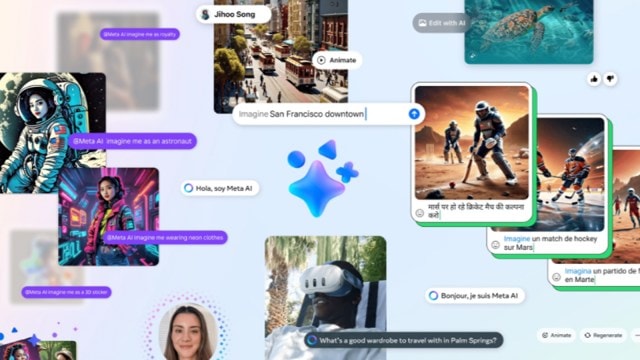Anuj Bhatia is a personal technology writer at indianexpress.com who has been covering smartphones, personal computers, gaming, apps, and lifestyle tech actively since 2011. He specialises in writing longer-form feature articles and explainers on trending tech topics. His unique interests encompass delving into vintage tech, retro gaming and composing in-depth narratives on the intersection of history, technology, and popular culture. He covers major international tech conferences and product launches from the world's biggest and most valuable tech brands including Apple, Google and others. At the same time, he also extensively covers indie, home-grown tech startups. Prior to joining The Indian Express in late 2016, he served as a senior tech writer at My Mobile magazine and previously held roles as a reviewer and tech writer at Gizbot. Anuj holds a postgraduate degree from Banaras Hindu University. You can find Anuj on Linkedin. Email: anuj.bhatia@indianexpress.com ... Read More
Meta releases its ‘biggest and best’ Llama 3.1 models rivalling OpenAI and Google
Facebook parent Meta says that Llama 3.1 is the “world’s largest and most capable openly available foundation model” that rivals commercial offerings from companies like OpenAI, Google, and Anthropic.
 The new version of Llama has 405 billion parameters or tweakable elements.
The new version of Llama has 405 billion parameters or tweakable elements. Meta is giving away one of the best AI models for free. The company announced on Tuesday its most capable version of a large language model, dubbed Llama 3.1. It’s free of charge and will be open source, which simply means anyone can easily access the cutting-edge artificial intelligence model.
Meta CEO Mark Zuckerberg wrote in an open letter on Tuesday, stressing that his company is taking a “different approach” by making the newest AI model “open source.” “We’re actively building partnerships so that more companies in the ecosystem can offer unique functionality to their customers as well.”
Facebook parent Meta says that Llama 3.1 is the “world’s largest and most capable openly available foundation model” that rivals commercial offerings from companies like OpenAI, Google, and Anthropic. The new version of Llama has 405 billion parameters or tweakable elements. Meta has already released two smaller versions of Llama 3, one with 70 billion parameters and another with 8 billion. Meta also released upgraded versions of these models branded as Llama 3.1.
“Llama 3.1 405B is the first openly available model that rivals the top AI models when it comes to state-of-the-art capabilities in general knowledge, steerability, math, tool use, and multilingual translation,” Meta said, detailing the AI model.
But unlike OpenAI and Google’s latest models, Llama is not “multimodal,” meaning it is not built to handle images, audio, and video. Meta, however, says the model is significantly better at using other software such as a web browser. The announcement also underscores Meta’s close relationship with Nvidia, which is a key partner and is providing Facebook’s parent company with computing chips called GPUs to help train its AI models, including the latest version of Llama.
View this post on Instagram
With the release of Llama 3.1, Meta once again hit out at the industry, showing that the closed approach to developing AI at scale may not be the right way to go. But this also shows that Meta is at the center of the debate over the dangers posed by releasing AI without controls and safeguards.
However, the open-source approach that Meta is leaning heavily on can cost the company billions of dollars. But in the case of Meta, the company can do so due to the sheer number of resources Meta possesses to develop and deploy AI models at scale. Google and OpenAI keep their most advanced models private.
“I believe that AI will develop in a similar way,” Zuckerberg wrote in his letter. “Today, several tech companies are developing leading closed models. But open source is quickly closing the gap.”
Experts believe Meta’s open-source approach benefits developers who get exposed to its tools and lets them build applications on top of it, which helps expand the open-source developer community.








